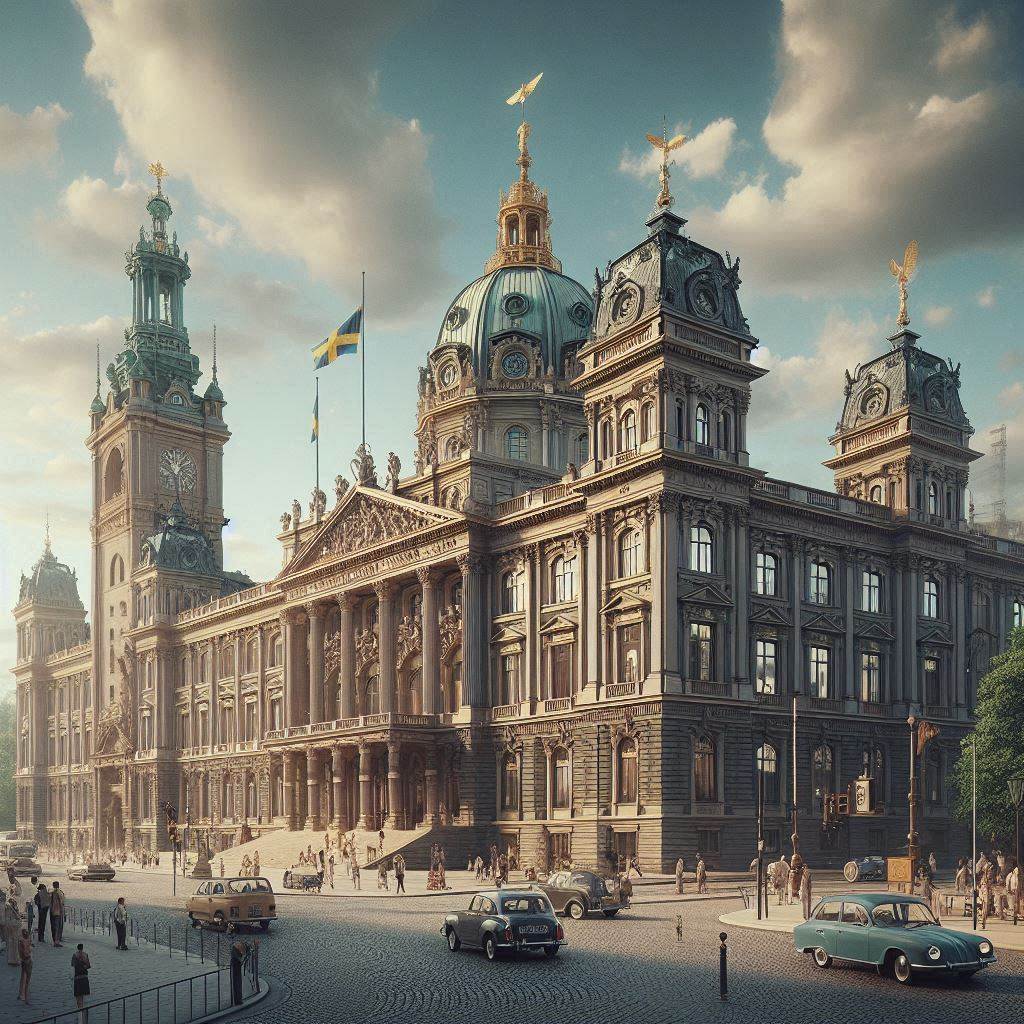Imperial Measurement: my talk at the ESFL conference at Reykjavik University
SUGGESTED



I am going to talk about the economics of imperialism, or more precisely, about the idea that the wealth of the Western world was built on slavery and colonial plunder.
That is an idea which has become extremely fashionable over the past four and a half years, in the wake of the Black Lives Matter protests. I’ll give you a few examples.
In the summer of 2020, a crowd of BLM activists in Bristol, England, pulled down a statue of a 17th-century merchant, who had made a fortune in the transatlantic slave trade. One of the organisers later wrote in the Guardian, Britain’s leading left-wing newspaper, that they were doing this to highlight the fact that:
“so much of the prosperity enjoyed today in the UK […] comes of the back of historical atrocities.”
There’s a lot in that statement. This activist is not merely saying that the British Empire committed some historical atrocities. That would have been uncontroversial. Everybody knows that. Even a British nationalist would probably admit that.
But that’s not his point. He is saying that these historical atrocities were not just random cruelty, but rather, that they were economically motivated. And that’s not all. He is not just saying that Britain was richer in the 17th century, or in the 18th, or in the 19th century, than it would have been in the absence of those atrocities. No: notice the word “today” in that sentence. He is saying that even today, Britain is a richer country than it would have been if it had never had an empire.
But how much is “so much”? Is that 20% of Britain’s present-day wealth? Is it 40%? Is it 60%? And how does he know that? What’s his source for that?
He doesn’t tell us – that’s the joy of having fashionable opinions. You don’t need to elaborate on, or substantiate statements like that. You can just assert it, and assume that everyone will agree.
Now, if this was just some random student activist, I wouldn’t bother mentioning it. But it’s very much not – that’s the whole problem. There are a lot of high-profile, influential figures expressing the same idea. For example, the Mayor of London, Sadiq Khan, also said:
“It is an uncomfortable truth that our nation and city owes a large part of its wealth to its role in the slave trade”.
Again, he is not merely saying that Britons, and Londoners, should be open and forthright about the darker chapters in their country’s/city’s past. That would have been uncontroversial. That is already happening anyway. For example, there is a gallery called ‘London, Sugar & Slavery: 1600 – present’ at the London Museum. It has been there since 2007: before the “Great Awokening”. I’m not aware of anyone who is trying to whitewash or downplay Britain’s or London’s role in the slave trade.
But, again, that’s not Khan’s point. He is talking about the perceived economic importance of the slave trade – and not just to London’s economy in the 17th or 18th century, but to London’s economy today.
He doesn’t tell us how much “a large part” is. Is that 20%, 40%, 60%? Nor does he tell us how he knows that. He just declares it a historical fact, and that’s that.
Owen Jones, a best-selling anti-capitalist author and journalist, also claims that
“Capitalism was built on the bodies of millions from the very start. […] Much of the wealth […] was made from the enslaved labour of Africans. The capital accumulated from slavery […] drove the industrial revolution”.
This leaves us, once again, with the same problem: how much is “much”? 20? 40? 60? He won’t tell us.
I could easily have filled this presentation just with quotes of that nature, but I don’t want to bore you. As is usually the case with fashionable groupthink, they all say more or less the same thing.
Where do these people get this idea from?
Most of them probably couldn’t tell. They just say it, because everyone else says it too, that is how fashionable ideas usually spread. But it does not come out of nowhere. It goes back to what economic historians call the “Williams Thesis”. In the 1940s, Eric Williams, who was then an Oxford academic, wrote an influential book called Capitalism and Slavery, in which he tried to show that the profits made from the slave trade and the slave plantations found their way back to Britain, where they were reinvested in the emerging manufacturing sector. This is where the idea that slavery financed the Industrial Revolution comes from.
It was later taken up, broadened, generalised, and popularised, by Jean-Paul Sartre, in the 1960s. Williams was talking about one specific part of one specific empire in one specific period. Sartre did away with those specifics. For him, it was capitalism in general which was built on imperialism in general. The BLM-mania of the early 2020s catapulted this idea to even greater prominence.
But is it true? How much did colonialism really contribute to the prosperity of Britain and other colonial empires?
That is the question I try to answer in Imperial Measurement. I can’t come up with an exact number, but we can narrow things down by asking three questions:
- How important was overseas trade – as opposed to domestic economic activity – to the British economy at the time?
- Within that category: how important were the colonies – as opposed to the rest of the world – to Britain’s overseas trade?
- Within that category: to what extent was colonial trade reliant on colonial status? As opposed to trade that trade could have happened anyway, even if the British colonies had never been British colonies?
Regarding the first question, the answer is “far less than today”. Imports plus exports amounted to about 25% of British GDP by the late 18th century, and up to 30% later. Today, it is more than 60%. The British economy was far less internationally integrated then than it is today.
Most of that trade was not with the colonies. At the peak, only about a quarter of Britain’s imports came from the colonies. The rest came from outside of the empire; mostly from other Western nations.
That still leaves a non-trivial role for colonial trade. However, not all colonial trade depended on colonial status. The British Empire also traded with plenty of places that it never colonised.
Some economic historians have looked at this relationship empirically. They find that colonisation boosts trade between the colonies and the coloniser. By how much, they don’t know exactly. Maybe one-and-a-half-fold. Maybe up to almost fivefold.
So let’s just say that the truth is closer to the higher end of that spectrum than to the lower end. Let’s say that trade between the British Isles and British India was four times larger than what trade between the British Isles and an independent India, or a French India, or a Dutch India, or some combination thereof, would have been. Even so, the point remains that at least some trade would have happened in the absence of an empire. We can’t put a number on that non-imperial trade volume, but we know that that number is not zero.
So much for the benefits of colonialism. They exist. They are not trivial. But they cannot have been huge either.
How about the costs? Empires do not come cheap. They lead to an increase in military expenditure, and administrative expenditure. How big was that increase?
Again, we cannot put an exact number on it. But we do know that Europe’s big colonial empires, such as the British one, had systematically higher levels of military spending, and higher taxes, than their less imperialist neighbours. We are talking about several percentage points of the overall tax burden.
All in all: it is just about possible that colonialism made a small positive net contribution. But it cannot have been of a magnitude that would justify phrases like “so much of the prosperity […] comes of the back of historical atrocities”, “our nation […] owes a large part of its wealth to […] the slave trade”, or “The capital accumulated from slavery […] drove the industrial revolution”.
It is also quite possible that colonialism was a net lossmaker, and that the Western world would have been better off without it. What made the Western world rich was its relative liberalism, not the deviations from it.
—
Recommended reading/watching/listening:
- Imperial Measurement: A Cost–Benefit Analysis of Western Colonialism | Kristian Niemietz
- Did the British Empire REALLY Drive the Industrial Revolution? | IEA panel discussion | Lawrence Goldman, Victoria Bateman, Zareer Masani and Kristian Niemietz
- British Empire, Colonialism & Slavery: Did Empire Enrich Britain? | IEA Podcast | Matthew Lesh and Kristian Niemietz
- Did Empire and Slavery make Britain rich? | IEA Explainer




